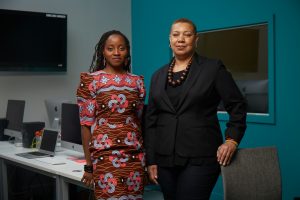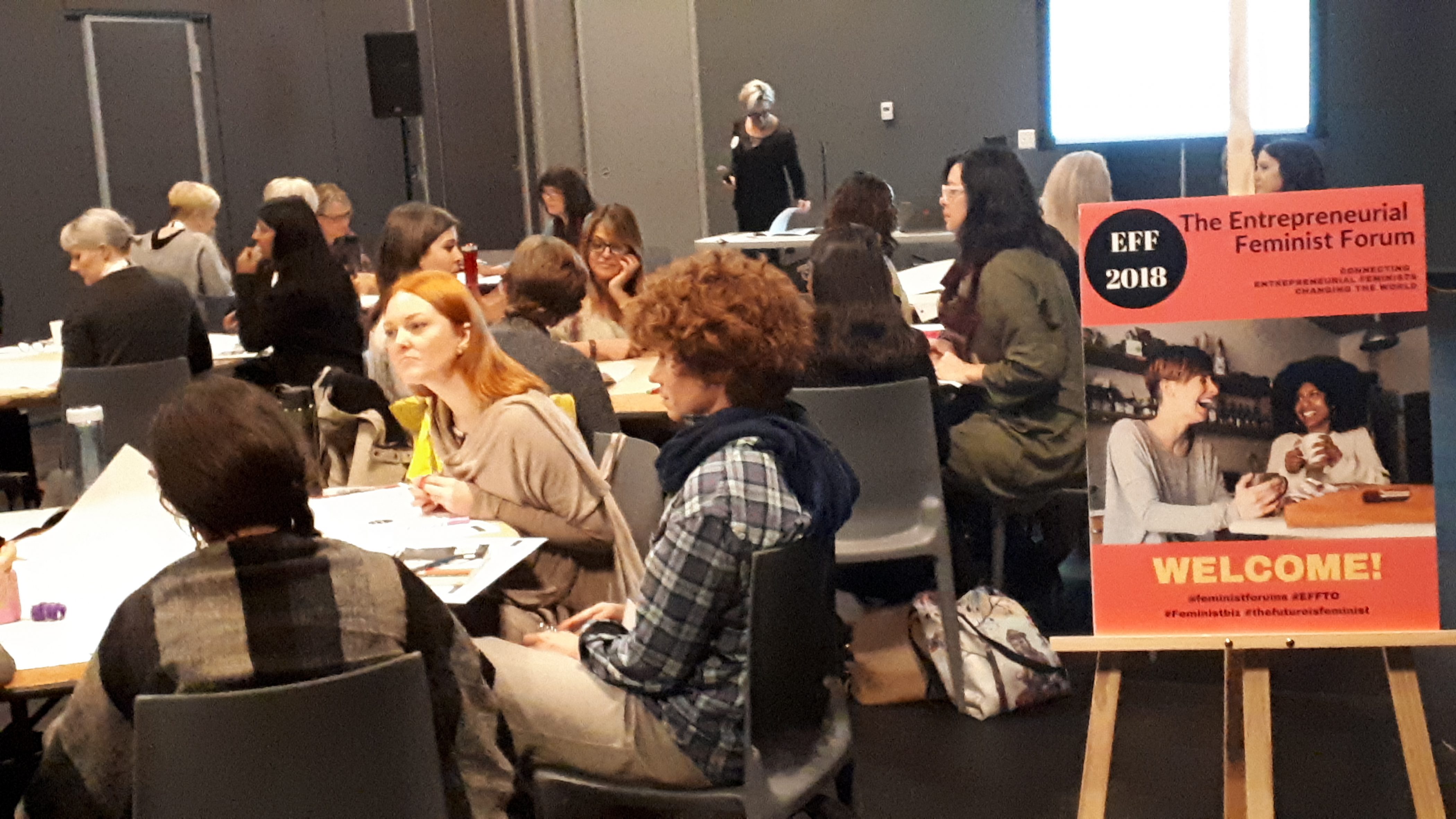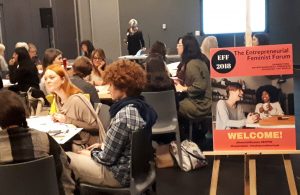
Photo by Stevens Marallana on Unsplash
PK’S VIEWPOINT
WHAT WOULD ROXANE GAY SAY?
We all know media bias exists. Just take a look at how each of these four Canadian mainstream newspapers positioned the dismissal of Jody Wilson-Raybould and Jane Philpott from the Liberal government’s caucus in early April.

Notice the editor’s choice of photos. Check out the headlines. Was it really necessary to shout “Tuesday Night Massacre” on the front page knowing that for some women, those words might have invoked the memory of a tragic event in Canadian history? The Montreal Massacre happened twenty-eight years ago where 14 women were killed by a male shooter at the École Polytechnique in Montreal, Quebec.
Consider the picture of Prime Minister Justin Trudeau on the cover of the Toronto Sun, and the accompanying headline: “Fake Feminist.”
For our readers outside of Canada, all these stories reported on Trudeau’s handling of a local corporate bully (SNC Lavalin, an engineering firm) and its efforts to delay prosecution over its use of public money to pay bribes to governments overseas (illegal in Canada). The situation led to a sizeable “he said/she said” drama between the Prime Minister, his office, and the Office of the Attorney General. The result was the removal of two smart, competent women from the Liberal government’s famous 50/50 caucus.
With great concern for how power influenced process, the nation debated whether or not Trudeau is authentic about his commitment to see women advance in society. Trudeau famously said: “Because it’s 2015” a comment on Canada’s first gender-balanced cabinet, the same man who just expelled two women from caucus.
As the fake feminist/real feminist conversation misted the political newscape of “We the North” land, and even made The New York Times, many of us who identify strongly as feminists, heaved a weary sigh.
In her New York Times Bestseller, Bad Feminist, Roxane Gay writes: “The more I write, the more I put myself out there as a bad feminist…but [at least] I am being open about what I am and who I was and where I have faltered and who I would like to become.” Gay’s book talks about the fact that despite her feminist identity, pink is her favorite colour and she sings along to catchy misogynist hip-hop songs.
Gay compassionately and beautifully makes the point that there is no perfect feminist—and counts herself among one of the most imperfect feminists around. Feminism is a huge, global, social movement. Complex, pluralistic, and hard on those who pick up the gauntlet. Everyone in it is learning. All the time. But rather than give up on the movement’s objectives and demands, Gay concludes her book by saying, “I am a bad feminist. [But] I would rather be a bad feminist than no feminist at all.”
I’m not letting Trudeau and his team off the hook. But as someone who lives in a province (Ontario) with a non-feminist provincial government working to lower the cost of beer, save money by reducing support for mid-wives, women’s shelters, library services, and implementing roll-backs on progressive sex-education, I can safely say that I would prefer a bad feminist government, than no feminist government at all.

THIS WEEK ON LIISBETH

Feminist Initiative leader Gudrun Schyman meets activists in Norway. Photo: Mimika Kirgios
(Gudrun Schyman centre stage wearing glasses)
HOUSE PARTIES RULE
If the Nordic diet ensures a healthier lifestyle, what can Nordic politics do for a more inclusive society? The Feministiskt Initiativ (FI) is a feminist political party founded in Sweden almost 20 years ago. Since then, many other European countries have followed suit.
What about the rest of the world? Few know that Canada once had a feminist party. The Feminist Party of Canada (FCP) was founded by Angela Miles. Women and men joined the party in 1979. The purpose was to “participate in electoral politics while transforming them along feminist lines. The media often included the Feminist Party when seeking statements or public appearances from political parties, which gave the FPC a strong public presence.” The party lasted three years. To learn more about it, click here.
Turns out that 40 years later, we are still struggling with the same issues. Perhaps the lack of a feminist party is part of the reason why.
We need to politicize the question of why feminist parties are needed now more than ever until it becomes OBVIOUS.
When film critic and writer Annika Andersson contacted LiisBeth about her idea to interview Sweden’s FI party founder, Gudrun Schyman, we put the story on our list. You voted yes (LiisBeth December Story Poll) and we commissioned the work.
Andersson flew all the way to Sweden to conduct in person interviews with both Schyman, and incoming leader, Gita Nabavi, to learn how human rights are at the forefront of their mandate and why they’re called the Home Party-party. Read the full story HERE.
Speaking of politics, thank you for voting. This story happened because of YOU. The article won the vote in our first reader poll. You voted, we got to work. #collectiveaction

April 15th: Minister Mary Ng announcing $2.5M investment into SheEO, a Canadian-based, global initiative designed to radically transform the way we finance, support, and celebrate female entrepreneurs. Photo: SheEO Twitter Feed
HOW TO GET INTO POLITICS
News media organization Al Jazeera‘s election tracking website says “Nearly two billion voters in 50 countries around the world will head to the polls [in 2019] to elect their leaders.” Realizing that political power is an effective way to drive change—many women are shaking off fears and running as candidates for the first time. But it’s not an easy job to be a politician. Even harder to become a candidate.
Many of us in the women’s entrepreneurship space in Canada see a lot of the Minister for Small Business and Export Promotiom, Mary Ng.
We thought we would ask Minister Ng about her start in politics. We hope it inspires others to consider the path. See our interview here.

A Nightwood Society panel discussion on the future of food with Michelle Battista, Salt & Straw’s Kim Malek, Alison Wu of Wu Haus, Nong’s Khao Man Gai founder Nong Poonsukwattana, and chef/food activist Arlyn Frank of Platano Rising.
Panel held by Cherry Bombe, a magazine devoted to women in food.
BUTCHERS, BAKERS AND CHANGEMAKERS
Portland, Oregon, USA. Known for coffee, eco-friendly bike paths, Ursula K. Le Guin and the Nightwood Society. From art to food, and crafts to music, this company has reinvented the idea of horizontal growth: doing a bunch of interesting things that complement each other. They’re complex and super cool.
Nightwood Society is a unique collective that is taking collaboration to the next level. Full story here.

Powerbitches founder, Rachel Hills
POWER BITCHES STIRRING THE POT
What’s so different about this feminist community network? For starters, it was founded by Rachel Hills, a feminist writer, producer, and movement-maker whose work has been published in The New York Times, Washington Post, Cosmopolitan, The Guardian, The Atlantic, Vogue, Buzzfeed, The Cut, and many more. Hills is also the author of “The Sex Myth” which was written to help make sense of the feelings of shame and difference she felt about her own sexual history.
Powerbitches is hosting an event focused on feminist entrepreneurship on May 13th. Fearless Entrepreneurial Feminist Forum (EFF) co-founder Lex Schroeder is on the speakers list. But you have to be a member to participate. To learn more about this organization, read our interview with Rachel Hills here.

WHERE ARE THE WOMEN IN TECH?
Innerspace is a tech company that wants to help Google figure out where you are going while inside a building. Apparently Google can tell what building you are in, but can’t see if you are in the bathroom or lunch room or at your desk once inside. A few weeks ago, Innerspace received venture investment from the Business Development Bank of Canada’s (BDC) Women in Technology Fund.
Those close to the company questioned its qualifications as a women-led tech company given there was only one woman on the team in the role of Chief Marketing Officer.
LiisBeth decided to dig in and check out the investments made since the fund started in 2016. You can find the results here. The punchline? The fund has a very low benchmark for what qualifies as a women-led tech company. The good news is that with the will to lead, BDC could change that going forward. An even better idea? Get out of the way and hand the fund’s management over to a collective of women in tech.
Have you had an experience with BDC’s WIT fund? Use the comment box at the bottom of the article to share your story or thoughts.
FEMINIST NEWS FREEBIE!

Grammy award-winner Lucinda Williams and a host of top Canadian and U.S. journalists will mark the Canadian Journalism Foundation’s (CJF) second World News Day on May 2nd in Toronto. Brian Stelter, chief media correspondent for CNN Worldwide and host of Reliable Sources, will emcee.
LiisBeth subscribers are eligible for complimentary tickets here with promo code: NEWSMATTERS
Speakers include: Manisha Krishnan, senior writer and host with VICE on covering weed, opioids and #MeToo, Connie Walker, host of CBC News podcast Missing & Murdered: Finding Cleo, and Julian Brave NoiseCat, journalist, on telling Indigenous stories, Hannah Alper, teenage activist, blogger and author, in conversation with Brian Stelter, and more. See the full list of speakers here.
World News Day takes place on the eve of World Press Freedom Day to celebrate the stories, the people, the reporting and the professional news organizations that are dedicated to changing lives, challenging the status quo, holding those in power to account and supporting freedom and democracy.
LIISBETH FIELD NOTES

Pramila Jayapal / Photo: Fathom Film Group
HUNTING IN PACKS
In the era of Trump and the #Me Too movement, Hunting in Packs is a provocative documentary film about three female politicians in Britain, the United States, and Canada negotiating their way through the old-school institution of politics.
“Things have gotten to the point where the absurdity of it all is beyond reason,” says Toronto based filmmaker Chloe Sosa-Sims. “Political farce has long lived as a genre in narrative film, but it no longer needs to exist in a parallel world of fiction, it’s our reality.”
The documentary follows three different women in three different countries who exist in parallel. They speak on world stages and perform with glowing confidence; they are policy makers, advocates and experts in their fields. Behind-the-scenes, their humanity is exposed as we get face-to-face with the reality of their livelihood; battling it out with less than worthy opponents, facing on-going ridicule when not towing the party-line, and encountering harsh contempt from the public. They are entirely different from one another, but are connected by an invisible thread.
Jess Phillips in the UK receives thousands of rape and death threats a year, largely because of her feminist rhetoric. Worse though, is much of the threats come from within her own party – the Labour party.
In the US, Pramila Jayapal has many radical proposals; sitting on the committee that will consider Trump’s impeachment, calling for Medi-care for all, and demanding reparations be paid to families separated at the border. As always, Republicans will shut her down, but there are some moderate democrats who are afraid that Pramila is too progressive and is creating a counterproductive narrative about Democrats seeking open borders.
Canadian Conservative Michelle Rempel believes the liberals are not properly handling the refugee crisis. On the other hand, she is fighting for more supports for the Yazidi community, especially the women who have been violated by sexual slavery.
“These women stand up for what they believe in and don’t let others, and the patriarchal nature of politics, hold them back,” says Sosa-Sims. “They are all forwarding policies that directly benefit these communities. And they are all driven by their personal commitment to feminism.”
Hunting in Packs is in early stages of production. The film is produced by Fathom Film Group, a women-led production company who doesn’t let the patriarchal nature of filmmaking hold them back.

CanWACH Director, Julie Savard-Shaw at a Mobilization event in Edmonton.
HEALTHY WOMEN, HEALTHY ECONOMY
Investing in girls and women affects the economy and keeping girls and women healthy is paramount.
The Canadian Partnership for Women and Children’s Health (CanWaCH) catalyzes collaboration among 100 partners who are improving women’s and children’s health globally. CanWaCH will be on site June 3rd to 6th in Vancouver at the Canadian Pavillion at the Women Deliver 2019 conference. The three-day event is the world’s largest gathering on gender equality and the health, rights and wellbeing of women and girls. Over 7,000 experts, journalists, activists, world leaders and youth will come to Canada for the conference, including LiisBeth! CanWaCH is using this huge momentum of the event to push for improved leadership on gender equality.
“We want to ensure that Women Deliver 2019 is not just a moment but springboard for action and real change,” says Caitlin Reid, Senior Communications Officer at CanWaCH.
Exactly one year ago they launched a campaign inviting organizations to host an event at the Canadian Pavillion and over 300 organizations signed on to join as “Mobilizers”. “They are all taking concrete actions to improve gender equality,” says Reid.
CanWaCH’s Month of Action starts on May 7th and will run until the conference begins in June. They will call on Mobilizers, and the public, to take final actions right up to the beginning of the conference. Reid says: “It will be the most important time for us to increase our shared impact and attention at the national stage.”
CanWaCH has secured Steamworks brew pub as HQ during the three-day event. Less than a ten-minute walk away from the conference at the Vancouver Convention Centre, the Canada Pavilion will be the go-to location for approximately 49 different events hosted by Canadian organizations between June 2nd to 7th, alongside the Women Deliver Conference.
Themes for the programming will be focused on women and children’s health. Mobilization events will be about achieving gender equality here in Canada and around the world.
Each event will have its own RSVP process and many will be open to the public and some will be live-streamed. Stay tuned for schedule updates coming soon.

Curbside view of Toronto’s oldest feminist bookstop
ANOTHER STORY BOOKSHOP
Toronto-based feminist bookstore, Another Story Bookshop has been operating in the west end of the city for over 30 years. The store sells a broad range of literature for children, young adults, and adults with a focus on themes of social justice, equity, and diversity. It also holds and hosts over 50 events per year. Its May 6th event at Lula Lounge is sold out. The evening will feature feminist crush adrienne maree brown, author of Emergent Strategy and her new book, Pleasure Activism plus other guests like Chanelle Gallant, a long time activist, writer and trainer with a focus on sex and justice.
A few weeks ago, we visited the shop to learn more about how this independent feminist bookstore has managed to thrive in the Amazon.com age.
To listen to our interview with the store’s event planner, Anjula Gogia, CLICK THE LINK at the bottom of the photo below. And if you didn’t get a ticket to the event (tickets were free but you had to sign up), don’t worry, we got you covered. LiisBeth will be conducting a video interview with Brown at the event. We are excited to share the chat with you all in our next refresh!
Want to order Brown’s latest book, or any book? Another Story ships anywhere! To order, and support indie bookstores, click here.

To hear the interview click here.
Photo: Emmy Legge, Customer Service (Left) and Anjula Gogia, Event Planner (Right)
FEMINIST FREEBIE!

JUST FOR SUMMER!
OUR DOWNLOADABLE READING LIST
We have updated our LiisBeth recommended reading list for feminist innovators and entrepreneurs! To download a collectively and carefully curated list of books, articles, and links that are central to the concept of feminist entrepreneurship, click here.
THIS IS WHAT 400 CROCUSES LOOKS LIKE
Flowers rely on sun and rain.
WE rely on YOU.
Our readers.
Every paid subscription helps us with grant applications.
If social and economic justice are important to you, here’s your chance to
help us grow the feminist economy…like 400 crocuses.
Our impact is measurable.
If you find our content of value, consider contributing to us on Patreon
Each online magazine refresh and newsletter takes a collective effort.
We have reached over 2,500 subscribers.
Less than 30% contribute financially.
LIISBETH STORY VOTE

Seeking: PROFILES of kick ass entrepreneurial feminists.
The City of Toronto contracted LiisBeth for the “Unapologetic: Feminist Founders in the City” (working title)
Hooray! We’ll be doing TEN profiles of feminist entrepreneurs who are changing the way businesses are designed and operated between now and December 2019.
We would LOVE to replicate this series in other cities and towns. But will need an editorial partner. Let us know if you are interested.
If you’re not sure if a business/person/company qualifies, this will help: Does Your Enterprise Meet the Feminist Business Standard?
We’ve got some ideas but we want to hear from YOU. What if we could make this initiative happen in communities around the world?
Send us your pitch HERE. A paragraph about a feminist entrepreneur in your community and why they should be featured.

Last month we asked readers which story we should publish next. We received only a handful of responses. But hey, our view is that it takes time for readers to get to know how this works—and that voting does work. (See Gudrun Schyman story above.)
The winning pitch from last month is: A story of the legacy left behind following the Wakefield, UK miners’ strike which was famously supported by gay and lesbian organizations—and serves as an example of an intersectional movement long before the word was coined. Readers are wondering what Wakefield is like now? Did activism have a lasting impact? We will be contacting the journalist shortly!
WHAT WE’RE READING

Twenty-Three Leading Feminist Writers on Protest and Solidarity
When 53 percent of white women voted for Donald Trump and 94 percent of black women voted for Hillary Clinton, how can women unite in Trump’s America? Nasty Women includes inspiring essays from a diverse group of talented women writers who seek to provide a broad look at how we got here and what we need to do to move forward.
Featuring essays by REBECCA SOLNIT on Trump and his “misogyny army,” CHERYL STRAYED on grappling with the aftermath of Hillary Clinton’s loss, SARAH HEPOLA on resisting the urge to drink after the election, NICOLE CHUNG on family and friends who support Trump, KATHA POLLITT on the state of reproductive rights and what we do next, JILL FILIPOVIC on Trump’s policies and the life of a young woman in West Africa, SAMANTHA IRBY on racism and living as a queer black woman in rural America, RANDA JARRAR on traveling across the country as a queer Muslim American, SARAH HOLLENBECK on Trump’s cruelty toward the disabled, MEREDITH TALUSAN on feminism and the transgender community, and SARAH JAFFE on the labor movement and active and effective resistance, among others.

Jenni Murray gives the lie to Thomas Carlyle’s infamous declaration that ‘the history of the world is but the biography of great men.’ Women have played just as great a role in the story of humankind, only for their own tales to be marginalised, censored and forgotten. Their names should be shouted from the rooftops.
Marie Curie discovered radium and revolutionised medical science. Empress Cixi transformed China. Frida Kahlo turned an unflinching eye on life and death. In A History of the World in 21 Women, Jenni Murray celebrates the lives, struggles and achievements of some of the most extraordinary people to have ever walked the Earth. They ruled empires, they led nations. They were pioneers in the arts and geniuses of science. They led while others followed, spoke truth to power and fought for change. All left behind an indelible mark.
‘Charming…[Murray’s] selection is pleasingly varied… but the strength of the collection lies in Murray’s relaxed and intimate style… a testament to the achievements and the complicated legacies, of extraordinary women.’ (BBC History Magazine)
Recommended by Another Story Bookshop, Toronto, Canada.
AND FINALLY . . . IN CASE YOU MISSED IT!
- Mental health conditions or addictions can get in the way of employment for many. Fortunately, Rise Asset Development, a unique entrepreneur support organization provides training and access to startup loans of up to $10K for aspiring entrepreneurs with mental health challenges. Their seven week youth program for aspiring entrepreneurs starts in July, 2019. If you or someone you know is a Canadian citizen, aged 16-24 and lives in Toronto, sign up today. Sign up here!
- Slovakia voted in its first female president last month. Zuzana Čaputová, a 45-year-old lawyer and anti-corruption campaigner, won 58.4% of the votes in Saturday’s poll and will take office in June. She campaigned on platform of humanism, solidarity and truth. “Let us look for what connects us. Let us promote cooperation above personal interests,” she told a crowd of supporters in Bratislava. The full article is in The Guardian here.
- Naomi Klein’s article in The Intercept includes the seven-minute short film “A Message From the Future” narrated by Congresswoman Alexandria Ocasio-Cortez and offers this thought experiment: What if we chose to radically change course and save both our habitat and ourselves? See for yourself here.
Huzzah! That was newsletter #52! It brings you up to date for another month.
To donate one time or become a donor subscriber, click here.
Next newsletter will come out in late May! Don’t miss it!
Peace out,




































































